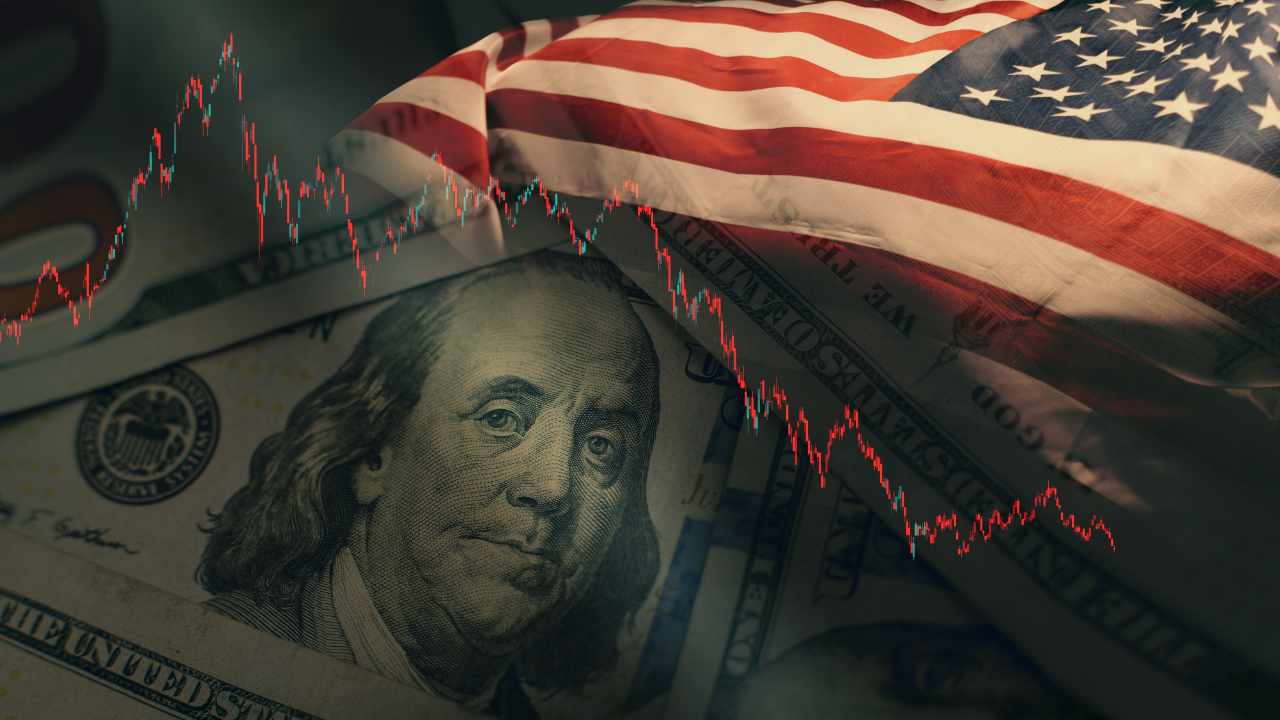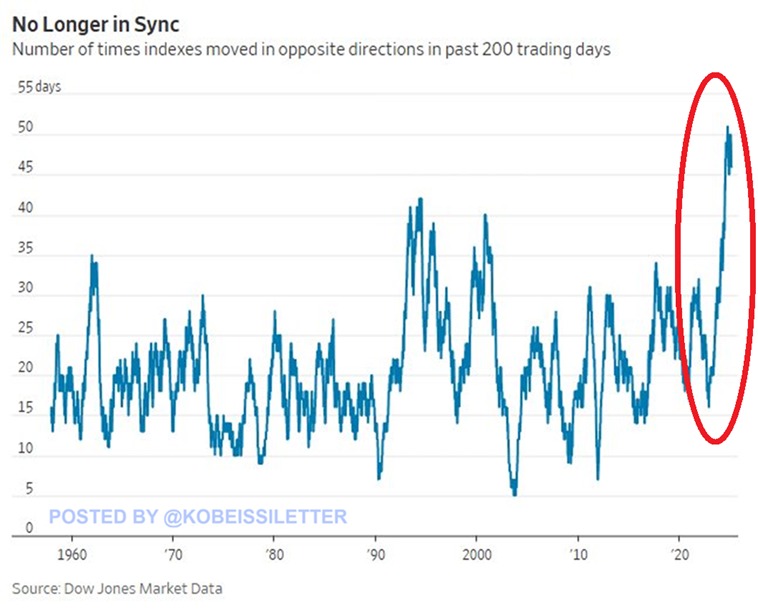Dow Jones and S&P 500 signal an imminent market crash
17.02.2025 14:00 2 min. read Alexander Zdravkov
The stock market may be headed for turmoil as a historic divergence emerges between the Dow Jones Industrial Average and the S&P 500.
Over the past 200 trading days, the two indexes have moved in opposite directions 50 times – an unprecedented divergence, according to a Feb. 16 post in The Kobeissi Letter. Remarkably, this divergence exceeds those seen during previous financial crises, including the 1994 bond market crash and the 2000 dotcom bubble.
A key factor in this divergence is the dominance of large-cap technology stocks in the S&P 500. Nearly a third of the index is weighted to companies that are benefiting from the artificial intelligence boom, while the Dow, which is less exposed to technology investments, has lagged – by 17 percentage points over the past two years. Such gaps between indexes are rare and have historically signaled big market shifts, often preceding corrections.
This divergence has also renewed the debate about the significance of the Dow Jones. Some argue that with just 30 stocks and a price-weighted methodology, it no longer reflects broader market trends, while the S&P 500 with its tech composition may provide a more accurate picture.
Analysts warn that if tech valuations are too high, the gap could signal an imminent correction. Alternatively, sector rotation – a shift of capital from technology to industrial and financial stocks – could allow the Dow to recover while slowing the S&P 500’s momentum.
Economist Henrik Seeberg warned that while the S&P 500 has reached all-time highs, this could be a prerequisite for a serious decline. Recent volatility and large capital movements have only heightened fears of an imminent crash.
-
1
Billionaire Slams Meme Stock Hype and Sounds Alarm on U.S. Fiscal Health
15.06.2025 18:00 2 min. read -
2
Robert Kiyosaki Predicts 2025 “Super-Crash,” Urges Hoarding Gold, Silver, and Bitcoin
23.06.2025 13:31 2 min. read -
3
Billionaire Investor Sees Dollar Crash If Key Support Breaks
18.06.2025 15:00 1 min. read -
4
Nassim Taleb Says Global Trust Is Shifting from the Dollar to Gold
22.06.2025 17:00 1 min. read -
5
Geopolitical Shockwaves Hit Ethereum Hard While Bitcoin Stays Resilient
22.06.2025 16:21 1 min. read
Coinbase Surges 43% in June, Tops S&P 500 After Regulatory Wins and Partnerships
Coinbase has emerged as the best-performing stock in the S&P 500 for June, climbing 43% amid a surge of bullish momentum driven by regulatory clarity, product innovation, and deeper institutional interest in crypto.
What Brian Armstrong’s New Stats Reveal About Institutional Crypto Growth
Coinbase CEO Brian Armstrong has spotlighted a significant acceleration in institutional crypto adoption, driven largely by the surging popularity of exchange-traded funds and increased use of Coinbase Prime among major corporations.
Whales Buy the Dip as Retail Panics: This Week in Crypto
The latest market turbulence, fueled by geopolitical tensions and investor fear, offered a textbook case of how sentiment swings and whale behavior shape crypto price action.
What Will Happen With the Stock Market if Trump Reshapes the Fed?
Jefferies chief market strategist David Zervos believes an upcoming power shift at the Federal Reserve could benefit U.S. equity markets.
-
1
Billionaire Slams Meme Stock Hype and Sounds Alarm on U.S. Fiscal Health
15.06.2025 18:00 2 min. read -
2
Robert Kiyosaki Predicts 2025 “Super-Crash,” Urges Hoarding Gold, Silver, and Bitcoin
23.06.2025 13:31 2 min. read -
3
Billionaire Investor Sees Dollar Crash If Key Support Breaks
18.06.2025 15:00 1 min. read -
4
Nassim Taleb Says Global Trust Is Shifting from the Dollar to Gold
22.06.2025 17:00 1 min. read -
5
Geopolitical Shockwaves Hit Ethereum Hard While Bitcoin Stays Resilient
22.06.2025 16:21 1 min. read



